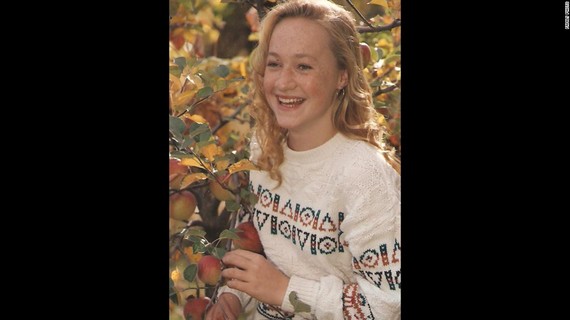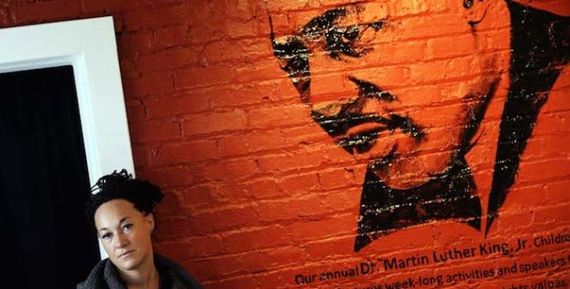On Monday June 15, 2015, Rachel Dolezal stepped down as President of the Spokane chapter of the NAACP. Ms. Dolezal is the focus of media attention with the revelation that although she represents herself as an African American, she is actually a lily-white white woman of German and Czech descent who reportedly uses a modern makeup to disguise herself.
Dolezal's misrepresentation of herself as an African American is indicative of the status of both black and white Americans in the early twenty-first century. By playing at being black, Rachel Dolezal pretends to live her life at a more disadvantaged and socially difficult end of society while retaining the ability to return to her privilege at any time. Rachel Dolezal's "blackness" is functionally a part of her white privilege.
Ms. Dolezal did not grow up worrying that she would be negatively racially profiled by police or employers. She did not worry that her SAT scores would be lower due to the racial/cultural bias inherent in the test or that her admittance into college would be negatively predicated on factors outside of her academic skill set. Ms. Dolezal made the decision to publicly identify herself as black only after she had reaped many of the lifetime benefits that come from being white.
It's like the Eddie Murphy/Dan Akyroyd movie, Trading Places. In the film, the rich, white character played by Akyroyd and the poor, black character played by Murphy try on each other's lives for size. The danger to Akyroyd's character is that his life of privilege may be permanently lost. Hijinks ensue (including this possible kernel of inspiration for Dolezal).
White privilege for Akyroyd's character in the film and Rachel Dolezal in Spokane is indicated in their ability to socially lower themselves at potentially no expense to their actual social caste. In a societal stair that rewards and celebrates white skin at the expense of non-white skin, the latter generally relegates one to a disadvantaged step.
In the end, of course, the entire concept of racism is social and cultural, not biological. There is no genetic difference between a white person or a black person predicated on their skin color. The entire concept of racism as we know it in our civilization is a very modern invention -- arguably less than 600 years old. But it is a real issue for those on either side of the privileges afforded those who have white skin, whether or not it is based on biological reality.
Rachel Dolezal has appropriated the black skin of those she came into her political maturity hoping to help. This woman grew up in relative affluence and privilege and confused a genuine political awakening with a shift in identity.
Many white people become radicalized over racial issues. It is important and necessary that their own white privilege is acknowledged and confronted as opposed to being hidden and denied. Only by doing so can the real work of dismantling racism begin.


